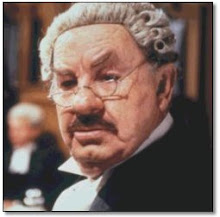As attorneys we frequently see people in the extremes of their behavior. Our clients are frequently in a life crisis and the true content of their character, both good and bad, is apparent from their conduct. This is never more true than when it is time to conclude the lawsuit.
Most lawsuits settle and there always comes a moment when it is time for the parties to legally forgive each other by signing a mutual release of all claims. The mutual release is an important part of the process. By agreement of the parties, the release forever ends the legal dispute over that matter. It doesn’t mean they agree on anything other than the fact that neither party can ever bring that matter before the courts again.
Unfortunately, some clients just cannot bring themselves to sign the release. Regardless of the circumstances, no matter what relief they have received, they are unwilling or unable to forgive their opponents and put the matter behind them even when it is in their own best interest. If this client is forced by circumstances to legally settle before they have processed their anger, they may transfer it to the next available target, often their own attorney.
In an excellent little paper titled, Dealing With the Difficult Client, Toronto Barrister Carole Curtis describes the relationship with an angry client in this way:[i]
“This client is unhappy before they retain a lawyer, and will continue to be unhappy. They usually cannot get at the person who is making them unhappy (the other side of the case), in order to tell them about it, but they can get to their own lawyer.”
American Attorney Linda Oligschlaeger was more blunt. She describes these people as the “Looking For Blood Client”[ii]
“This client is consumed with anger that will certainly stand in the way of any rational or fair result. This type of client wants revenge and the other side to pay with blood and money. Your rational solution will fall on deaf ears. It's nearly impossible to work with someone whose judgment is so clouded with anger. This person's anger can very easily turn on you. If revenge can't be taken out on the other side, you will do.”
So, what are you supposed to do with an unforgiving client? In a word, forgive them. My advice would be to quickly and permanently terminate the professional relationship, offer them the best fee compromise you can consistent with the Rules of Professional Conduct, and then give and get a full and unconditional release of liability. If they refuse to be reconciled with you as they have with their original opponent (which is likely to happen) then the matter is in God’s hands and the courts if necessary.
--30--
[i] Dealing With The Difficult Client, Carole Curtis, B.A., LL.B., Barristers & Solicitors, 260 Richmond St. W., Suite 506, TORONTO, Ont. M5V 1W5
http://www.practicepro.ca/practice//pdf/DealingDifficultClientCaroleCurtis.pdf


1 Comments:
Stuff they don't teach in law skool, eh?
Post a Comment
<< Home